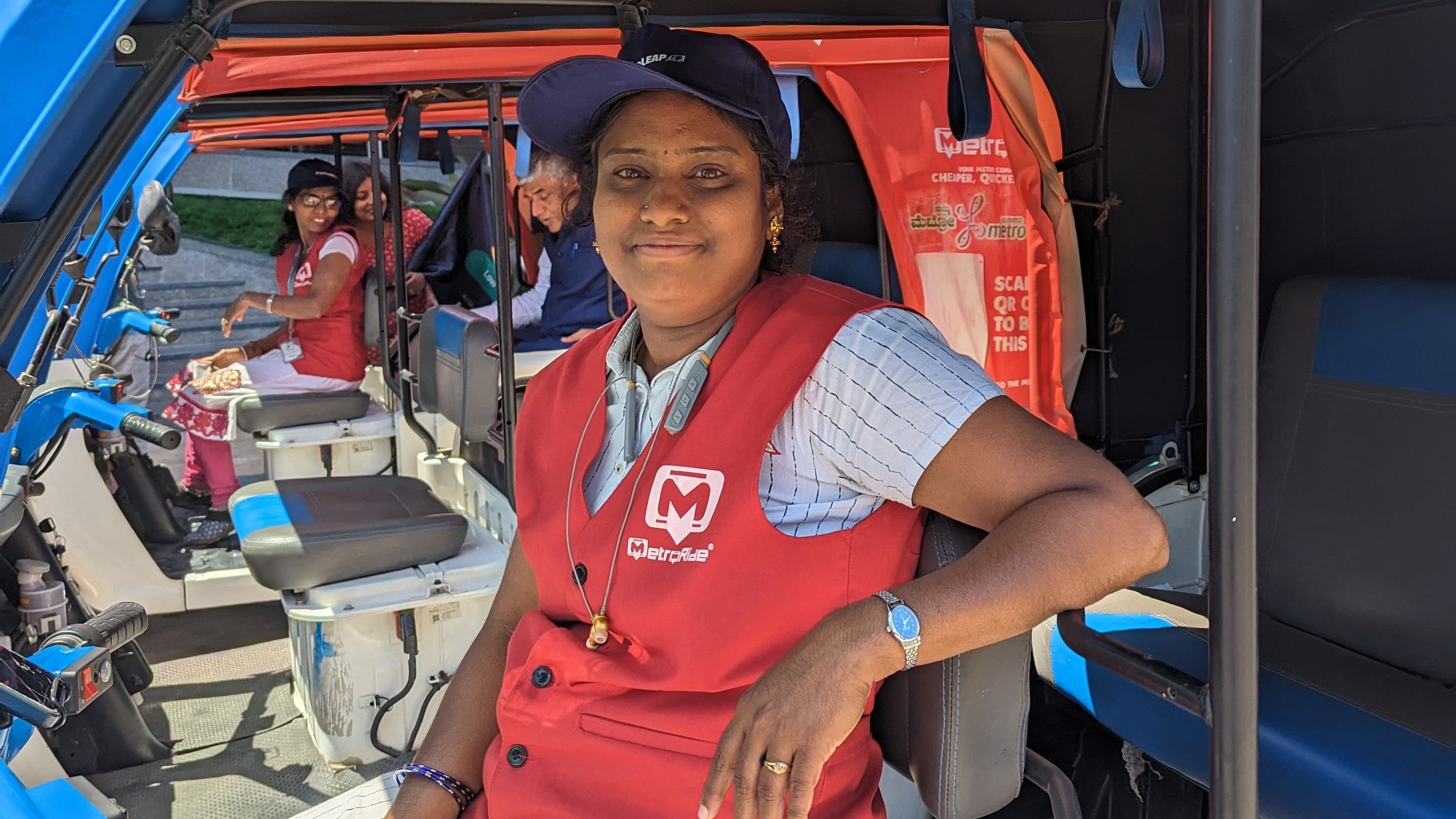
Bhuvaneshwari, who has taken to driving electric autorickshaws, is now encouraging more women in her neighbourhood to do the same. (R) The newly launched electric autorickshaws.
Credit: DH Photo/Udbhavi Balakrishna
Bengaluru: Now, expect to see an all-women fleet of electric autorickshaws outside metro stations to provide last-mile connectivity within a 4-km radius.
In a bid to enhance public transport usage with sustainable last-mile reach in the city, rolling stock manufacturer Alstom, supported by research nonprofit WRI India, launched the Low Emission Access to Public Transport (LEAP) programme on Wednesday.
As a pilot, 12 electric autorickshaws each will be stationed at Yelachenahalli and Indiranagar stations, which will be provided by EV ride-hailing startup MetroRide, completely run by trained women drivers. In doing so, the programme aims to empower women and include them in critical decisions taken in the urban mobility space.
Over the past three months, MetroRide has trained 25 women to drive these low-emission autos that can be hailed via their application. Many of these women are residents of JP Nagar, Anjanapura and Yelachenahalli, and have taken up driving as a means to supplement their family income.
Veena, 37, a resident of JP Nagar, was one of the drivers at the event. A trained autorickshaw driver by day, by late evening, she dons the hat of a beautician and tailor who runs an independent business. “My family is not supportive but I fought for this and trained over six months because it feels freeing and helps me build a supportive community outside my home,” she told DH.
Anjanapura resident Thasneem, 38, sought inspiration from her husband and son, both of whom are drivers themselves, to make the switch from being a home cook at a gated society in JP Nagar to a driver.
“I’m lucky to have family support but most male drivers we encountered during training sessions asked us to quit and stay at home. Why should we? We want to earn for ourselves and be independent,” she said.
A panel discussion at the launch dissected mobility and safety challenges plaguing the widespread adoption of the metro as a commuting option. Besides frequent cancellations by autorickshaws, a lack of safe pedestrian infrastructure, one of the major concerns the panel expressed was the lack of women auto drivers.
Olivier Loison, MD, Alstom India, Prof Rajeev Gowda, Vice Chairman, State Institute for the Transformation of Karnataka, and Srinivas Alavilli, Fellow, Integrated Transport and Road Safety, WRI India, all emphasised the importance of the initiative to bridge last-mile challenges.
Prof Rajeev Gowda Vice Chairman State Institute for the Tranwsformation of Karnataka waves from an electric auto-rickshaws flagged off on Wednesday. Credit: Udbhavi Balakrishna
Credit: DH Photo/ Udbhavi Balakrishna
Electric auto-rickshaws
Credit: DH Photo/ Udbhavi Balakrishna